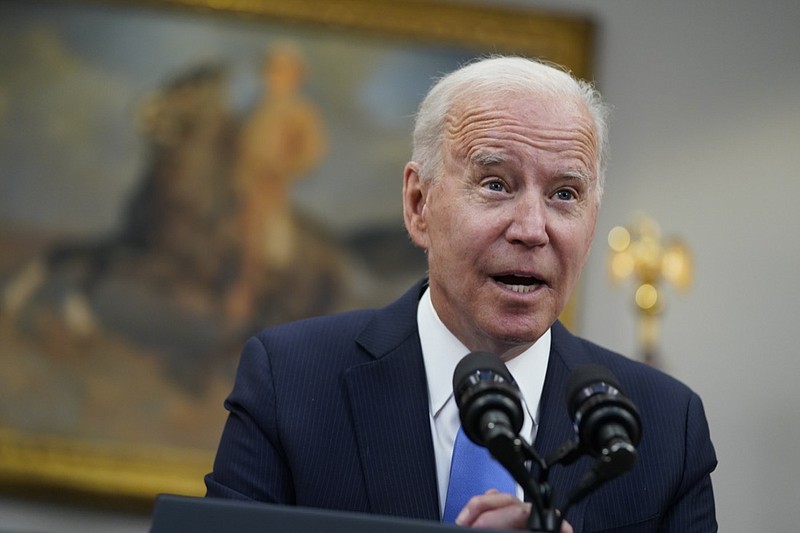The news from Washington last week, as usual, was grim. Senate Republicans blocked legislation to create a bipartisan commission to investigate the Jan. 6 attack on the Capitol. Bipartisan talks over President Joe Biden's infrastructure proposals are dragging out. Senators negotiating a police reform bill missed their deadline.
It's disappointing to progressives who want to see the government get things done, and to moderates who were hoping a Biden White House would successfully lower the temperature of American politics after the zany Trump years. Even conservatives, who are largely responsible for the gridlock, profess to be disappointed.
I have good news for everyone. This image of a hopelessly broken American political system is basically false. What I call the Secret Congress is working away on legislation that flourishes in the shadows like a fern, avoiding the polarization and zero-sum thinking that engulfs any high-profile political fight.
Consider the Endless Frontier Act, which is expected to pass the Senate with a large bipartisan majority. This bill never led the front page of The New York Times, was never the lead item in Politico's Playbook, never topped the hour on cable news.
What is it? A major boost in U.S. science funding, including $12.4 billion extra to the National Science Foundation over the next five years, $17.5 billion in new funding for DARPA, $17 billion to the Department of Energy and its various national labs, $10 billion to the Commerce Department to create new regional tech hubs, and $10 billion to NASA for a Human Landing System program. The headline feature is $26.5 billion to stand up a new Technology Directorate at the NSF to make grants in areas that are considered national priorities, such as artificial intelligence.
One reason you haven't heard that much excitement about the bill is that it represents a significant diminishment of its sponsors' original aspirations.
But from another point of view, the important thing is that they will (almost certainly) pass it. This is how Congress, at least the sepia-tinted version that people express nostalgia for, is supposed to work: operating through regular order with committees and amendments rather than leadership jamming things through.
What's particularly interesting is that this is happening not despite the fact that it's under the radar, but because it's under the radar. The Biden administration supports the law, but the president didn't mention it in his address to Congress last month and the administration hasn't done showy briefings with reporters.
Since it's not Biden-branded, its passage won't be covered as a "major win for the Biden White House." And because it's not a "win" for Biden, it won't be a "loss" for Senate Minority Leader Mitch McConnell, whose members have been actively involved in writing and amending the bill.
There are other bills that the "Secret Congress" is working on. While partisan bickering continues over the meaning of "infrastructure" as defined in Biden's American Jobs Plan, the Senate Environment and Public Works Committee unanimously approved the Surface Transportation Reauthorization Act last week.
A "surface transportation reauthorization act" is what's known in English as an infrastructure bill.
If this were announced as a deal between Biden and Republicans, the GOP members would be denounced for boosting an illegitimate president and Biden would be criticized for failing to hold the line on key progressive ideas. Instead, Shelly Moore Capito of West Virginia and Tom Carper of Delaware worked out a deal to little fanfare - and it just might happen.
At the very least, it stands a better chance of passage than Biden's American Jobs Plan. In fact, the unheralded infrastructure bill includes some features that are also in the Jobs Plan, as does the Endless Frontier Act. By taking them out of the hyperpartisan context of a presidential proposal, they can garner more cross-party support.
That might not please partisans. But it should satisfy anyone who comes to Washington hoping to pass laws that make people's lives better in tangible ways.
Bloomberg
